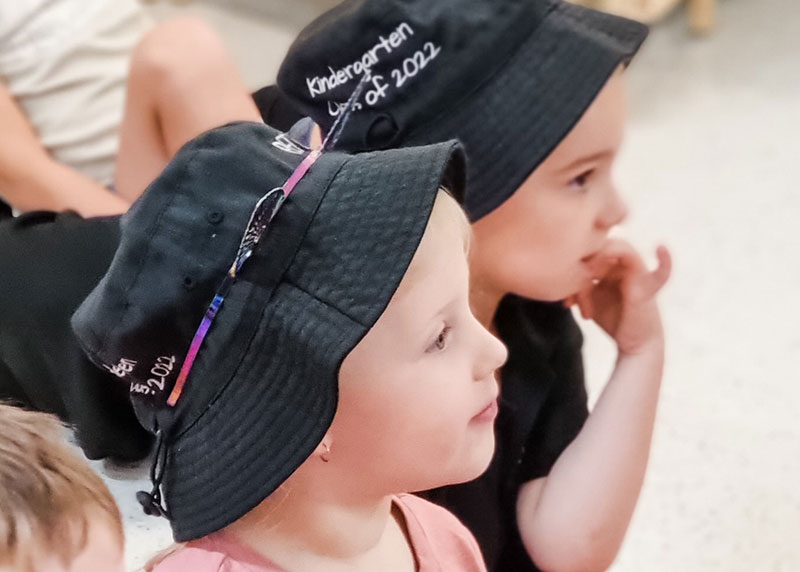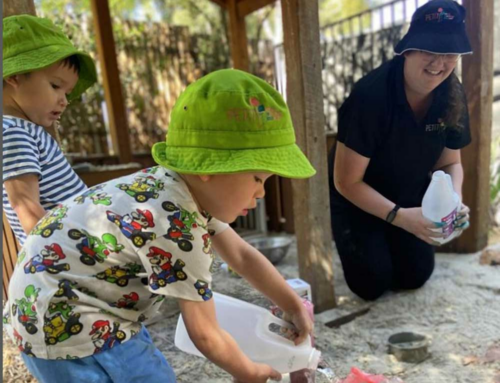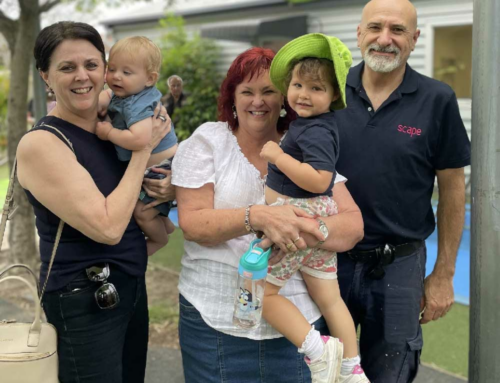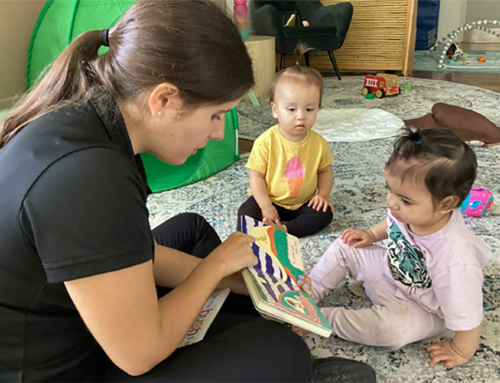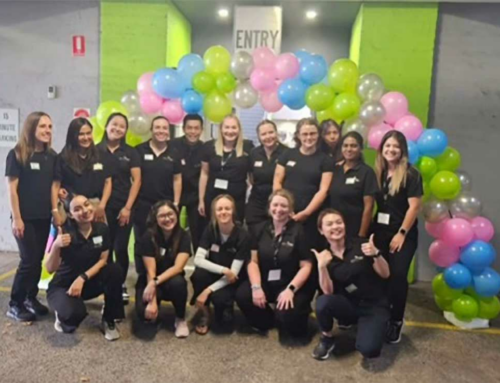When educators encourage positive learning dispositions in children, they set them up for success. Positive dispositions like curiosity, cooperation, creativity, persistence and enthusiasm help children to learn and grow. We explore how to encourage these dispositions and why they are important.
Learning dispositions refer to how children engage in and relate to the learning process. These life attitudes describe how children might respond to situations. The Early Years Learning Framework (EYLF) enables educators to encourage children’s positive dispositions through teaching practices, the environment and role modelling.
In this article, Brooke Bush, Assistant Centre Director and interim Educational Leader for Burdell 2, reflects on the EYLF Postcards for “Dispositions for Learning” and how they:
- Promote the development of learning dispositions in early childhood
- Encourage children to be creative and curious
- Help children develop persistence and perseverance
- Supporting children in becoming confident and involved learners

How do you promote the development of learning dispositions in early childhood?
At Petit ELJ Burdell, we have embraced the culture of positive dispositions for learning across both of our services. Positive dispositions play a critical role in children becoming confident and capable learners.
We promote learning dispositions by encouraging uninterrupted routines. An uninterrupted routine allows each child to be fully engaged in their choice of learning and not be disrupted until they are ready.
Our teams are trained to set up an environment with intent and purpose. At the same time, the experiences are open-ended and flexible. This allows each child the opportunity to approach new experiences with confidence.
When our teaching teams set up experiences, we may invite the children to participate in the selection of materials, allowing for the child’s voice to be heard.

How do you encourage the children in your setting to be creative and curious?
We embrace a child-led environment that promotes children’s creativity and curiosity by developing challenging and stimulating educational programs throughout our services.
Our approved Kindergarten program runs an inquiry-based approach to learning, enabling the children to be curious about learning by asking questions about who, why, when, where and how while exploring the world around them.
Creativity through child’s play is often conceived as creating something new. This happens especially in our younger studios, where inquiry-based learning is also adopted in partnership with an extensive range of loose parts because we believe the learning environment is a place of potential and possibility.
Through this inquiry-based learning approach, children become engaged in the program, and we regularly document and reflect on their voices.
Role modelling, where an educator exhibits positive behaviours to influence the behaviour of children, is also a useful tool for promoting learning dispositions in the first five years.

How do you help children develop persistence and perseverance?
Developing persistence plays a key role in children’s learning and later academic achievements.
First, we foster the underlying skills to assist in developing persistence. For example, problem-solving and critical thinking are two skills we embrace that allow children to build strong persistence.
At Petit ELJ, we give children autonomy over decisions and encourage positive behaviours with role modelling. For example, we embedded a ritual where the children serve themselves throughout their mealtimes. In addition, our responsive mealtimes encourage them to choose when to eat by listening to their bodies.
While the children needed help making these decisions at the beginning of the year, through practice and role modelling, they now do this with ease. We have also reflected as a team on “meaningful mealtimes” at Petit ELJ and have collaborated to design spaces for slow pedagogy and agency.
Developing perseverance is about the child learning to be resilient and understanding how to cope when faced with something difficult or where there seems to be no chance of success. We support role modelling throughout the day, so when the risk of giving up is greater, educators will strategically place themselves to intervene as required.
For example, we recently purchased an obstacle course for the younger studios. The children were excited and attempted the course several times during the week. However, we observed them becoming overwhelmed and frustrated, so our educators began verbally guiding the children through the obstacles.
Our educators will not take over from something the child is doing but instead build their self-esteem and confidence by verbally guiding them to a point in the experience where the child has the ability to keep going on their own.

How do children in your care become confident and involved learners?
At Petit ELJ, we encourage children to be confident and involved learners by building a sense of security and providing children with tools to promote good wellbeing.
We create a safe space for children and develop trusting relationships with them and their families. Having these trusting relationships with the children allows the child to go out from their circle of security and come back into that secure attachment as required.
Being a confident and involved learner requires many learning dispositions. By promoting these learning dispositions, children can develop the skills needed to engage in learning.
For example, at Petit ELJ Burdell we are adventurous, developing our self-confidence in environments such as Bush Kindy where considered risk-taking is embraced and pursued. And we are confident as we build our self-esteem feeling proud of our accomplishments during experiences like gymnastics.
At Petit ELJ, every child is capable, resourceful, and a constructor of their own knowledge. This is evident through inquiry-based learning, where children ask questions to build their understanding of the world. We also provide children with open-ended resources that present children with choices, support independence and promote creativity.
In addition, our educators recognise and value children’s involvement in education. We encourage participation by listening to a child’s interests and ideas and incorporating these into our programs, practices and rituals.

Encourage positive learning dispositions with Petit Early Learning Journey
At Petit ELJ, our educators engage as a team on contemporary teaching approaches. They participate in collaborative discussions to share pedagogy and experiences while using reflection to question and improve our curriculum and learning programs.
Are you searching for a new opportunity or a career change with an early childhood education and care service that embraces a reflective practice, collaboration, shared pedagogy and role modelling? If you’re genuinely interested in educating and caring for young children then what are you waiting for?
